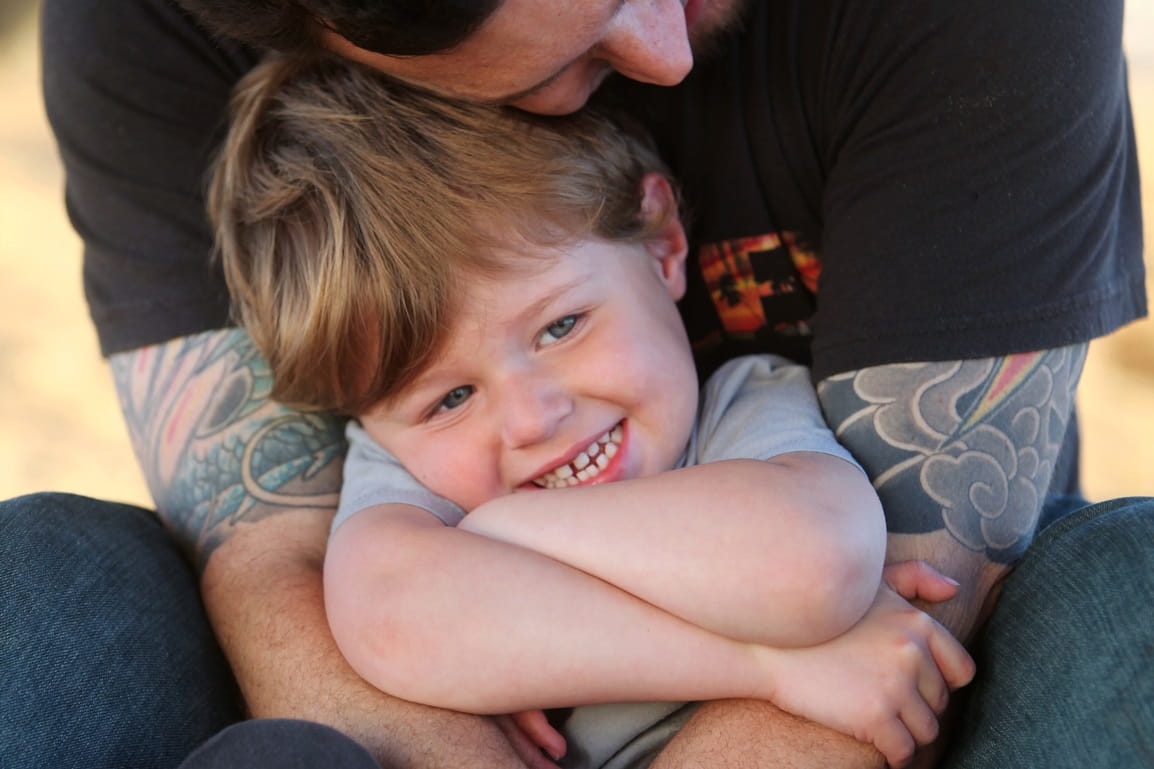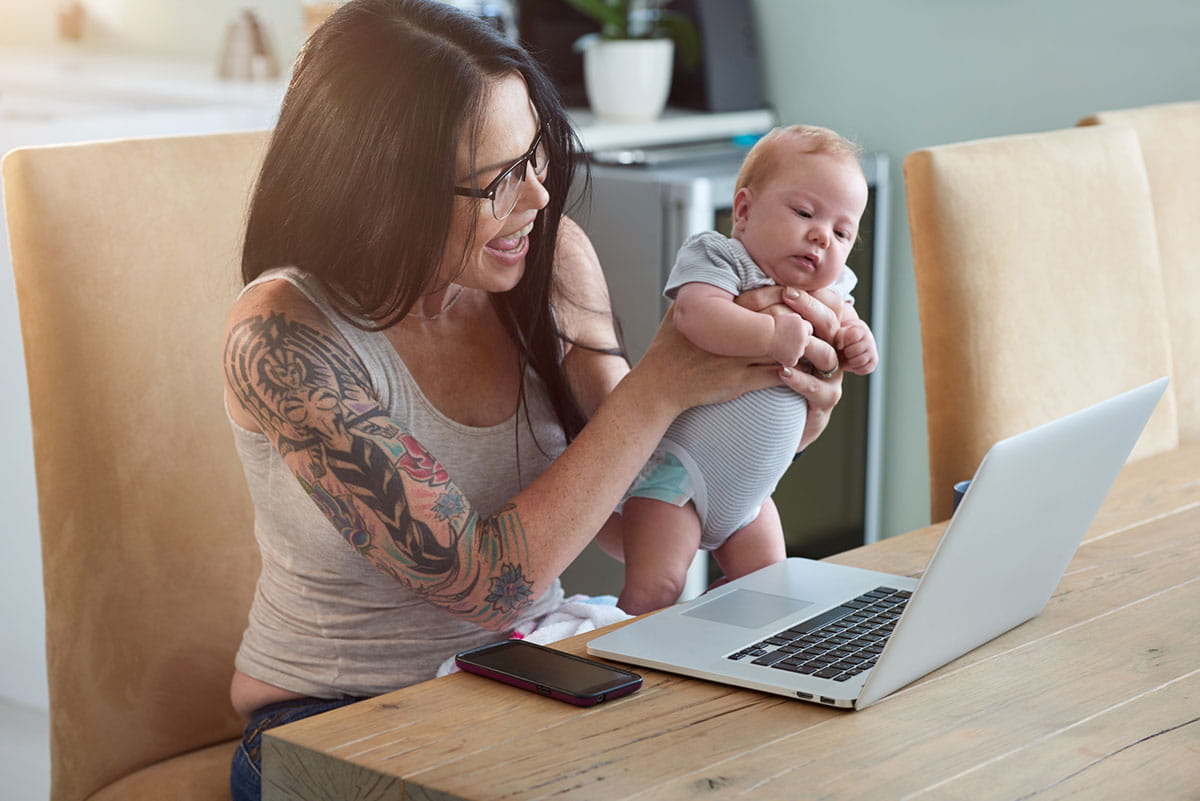Millennial Parents: 6 Surprising Ways They're Raising Kids Differently

Are Millennial Parents All That Different from Gen X and Baby Boomer Parents?
Millennials (those currently aged 18 to 34) now number 75.4 million people—more than any other generation, including the baby boomers. And right now, those millennials are raising the yet-to-be-named future generation of Americans. So are millennial parents raising kids any differently than previous generations?
According to Dr. Kathleen Gerson, sociology professor at New York University and author of The Unfinished Revolution: Coming of Age in a New Era of Gender, Work, and Family, the answer is, well, yes. This is partly because today’s millennial families are navigating some big societal shifts that previous generations did not experience. “Many children now grow up in houses with two working parents or with one parent,” Gerson says. “Mothers are more likely to be working.”
So how do these (and other changing realities) shape millennials’ approach to parenting? Gerson offered her take on six key differences in millennial parenting styles.1. Millennial Parents Are Busier—But They Spend More Time with Their Children.
According to Gerson, one of the biggest misconceptions about parenting today is that parents are less devoted than parents were decades ago. “The research shows this is not the case,” says Gerson. Even though many families now have two working parents, “the fact is that parents today are spending more time with their children than parents did in the 1950s.”
And it’s not just moms who are more involved in their kids’ lives. The role of fathers is changing too, according to research from Boston College’s Center for Work and Family. Overall, millennial fathers are more enthusiastic about parenting duties than dads of previous generations. In fact, many millennial families, especially those with two working parents, embrace a “co-parenting” approach, in which responsibilities for all things kid-related are spilt more or less equally between both parents.
That means the struggle to find the balance between work and caregiving is shared by both parents, too. Boston College’s studies have found that 85 percent of millennial fathers report that they want to spend more time with their kids.
2. Millennial Parents Value Positive Parenting over Authoritarian Discipline.
“Around the mid-20th century, there was a strong shift from the notion that strict discipline and physical force were acceptable and even good ways to set limits on behavior,” says Gerson. Today’s parents are more likely to reinforce positive behaviors than punish negative ones.
But is that a good thing? “We’re in the middle of a debate about whether we’ve gone too far in the other direction,” says Gerson. “Are we rewarding children too often when they haven’t achieved great things?” According to Gerson, the jury’s still out.
3. Millennial Parents Value Togetherness (Though Not Always at Mealtime).
Many families still value meals as a time for everyone to be together, but the traditional 6:00 family dinner is becoming increasingly harder to pull off: Often both parents are working, with little control over their schedules. “Wage workers might receive their schedules just hours before they have to work, and professionals might find out in the morning that they are expected to stay late—all these uncertainties make it difficult to schedule shared evening meals.”
And yet, today’s parents still value spending quality time as a family—they’ve just found a different time to do so. “For many families, the weekends have become the time for being together,” Gerson says.

4. Millennial Parents Are (Super) Safe.
“Today most families, regardless of their income or education level, want to keep their children as safe as possible,” Gerson says. “No one complains, for example, about buckling their children in car seats. For today’s families, this is just what good parenting requires.”
And how do millennial parents get a majority of their safety information? The Internet, of course! Referred to as “digital natives,” millennial moms and dads are the first-ever generation to have safety tips constantly at their fingertips. Which can work for them, or against them, as this 2017 New York Times article suggests. They may have lots of digital advice and apps to turn to, but that can be overwhelming—and make parents question if they’re doing the right thing.
Regardless, they care a lot about doing it right—hence the embrace of previously optional parenting accoutrement like bike helmets, stroller safety belts, and wide-brimmed sunhats to protect kids’ skin.
5. Many Millennial Parents Tend to Schedule Everything—Even Free Time.
It’s not news that children’s lives have become more scheduled than they were a generation ago—and this is a direct reflection of what’s happened in parents’ work lives. “Work weeks have expanded…and this has trickled down into the lives of children,” Gerson says. “Free time increasingly is something you now have to carve out. For many middle class families, it involves scheduling activities such as ‘play dates.’”
6. Millennial Parents Understand That These Early Years Are Critical—and Fleeting.
“Today’s parents continue to make sacrifices for their children, despite the belief that parental sacrifice is in decline,” says Gerson. “Even amid new economic uncertainties, most parents are doing their best to give their children whatever they need to grow up and find a stable future in an increasingly unpredictable world.”
When it comes to saving money for their future, the statistics on this one are somewhat staggering: According to Forbes Magazine, 66 percent of millennials are saving for their children’s college years, while only 47 percent of Gen-Xers and 35 percent of baby boomers did the same.
That’s a hefty generational difference, but the fact remains that, at the end of the day, millennial parents aren’t so different from previous generations in wanting to love and do right by their kids—in ways that their parents might not have done for them. Which probably sounds pretty familiar to every parent ever, too.




